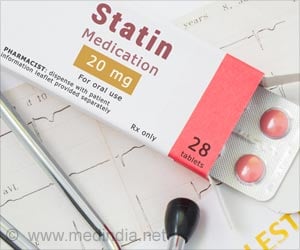Heart attack, heart failure and stroke risk were greater among older adults with low physical function.
- Low physical function in older adults increases cardiovascular disease risk, irrespective of whether an individual has a history of cardiovascular disease
- This highlights the value of assessing the physical function level of older adults in clinical practice
From 1987 to 1989, 15,792 people between the ages of 45 and 64 were included in the Atherosclerosis Risk in Communities (ARIC) research, a community-based cohort that is still running and is looking into the aetiology of atherosclerotic disease (plaque or fatty build-up in the arteries). Telephone conversations and in-person clinic examinations were part of the yearly and semi-yearly (starting in 2012) check-ins.
The SPPB physical function test was first gathered in the current investigation, which used ARIC visit 5 (2011–2013; all individuals were older than 65) as a baseline. The SPPB evaluated physical ability to provide a score based on walking speed, the rate at which you can get up quickly from a chair without using your hands and your standing balance.
Researchers examined health information for 5,570 adults, with an average age of 75 and a gender distribution of 58% women, 78% white adults, and 22% Black adults. Based on their performance on the test, the participants' physical function was divided into three groups using their SPPB scores: low, middle, and high.
After controlling for important cardiovascular disease risk factors like high blood pressure, smoking, high cholesterol, diabetes, and a history of cardiovascular disease, researchers looked at the correlation between SPPB scores and future heart attack, stroke, and heart failure as well as the composite of the three.
Findings of the Study
1. In terms of physical function, 13% of participants had poor scores, 30% had intermediate scores and 57% had good scores.2. 930 research participants experienced one or more verified cardiovascular events over an 8-year trial, including 386 cases of heart attack, 251 cases of stroke, and 529 cases of heart failure.
3. Adults with poor physical function scores were 47% more likely than adults with high physical function scores to have at least one cardiovascular disease event. Adults with intermediate physical function scores were 25% more likely to encounter such an occurrence.
4. Even after accounting for established cardiovascular disease risk factors like age, high blood pressure, high cholesterol and diabetes, the link between physical function and cardiovascular disease persisted.
5. Regardless of whether a person had a history of cardiovascular disease or was in good health, the physical function score increased the risk prediction of cardiovascular disease outcomes beyond standard cardiovascular risk variables.
“Our findings highlight the value of assessing the physical function level of older adults in clinical practice. In addition to heart health, older adults are at higher risk for falls and disability. The assessment of physical function may also inform the risk of these concerning conditions in older adults,” said study lead author Xiao Hu.
“Our study adds additional evidence to past research, which has demonstrated the importance of maintaining physical function at an older age,” Matsushita said. “The next questions are: what is the best way for older adults to maintain physical function and whether interventions that improve physical function can reduce cardiovascular disease risk?”
Adults from only two racial or ethnic groups- White and Black- were included in the study population (ARIC began enrolment in 1985 when participation among people from diverse racial and ethnic backgrounds was more limited). Additionally, the study did not take into consideration people whose limited mobility would prohibit them from being evaluated at a research clinic. The findings will need to be confirmed in individuals from more diverse racial and ethnic groupings as well as individuals with even lower levels of physical function.
Source-Medindia









